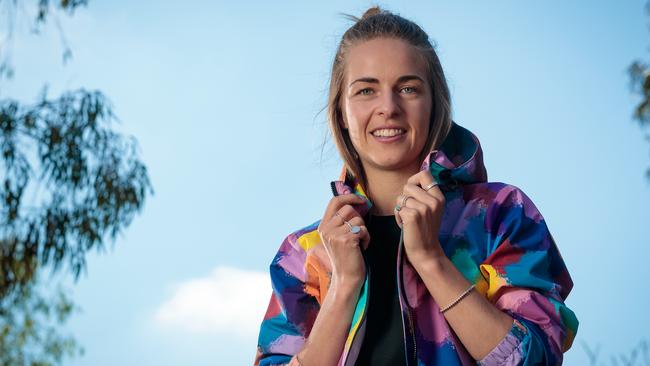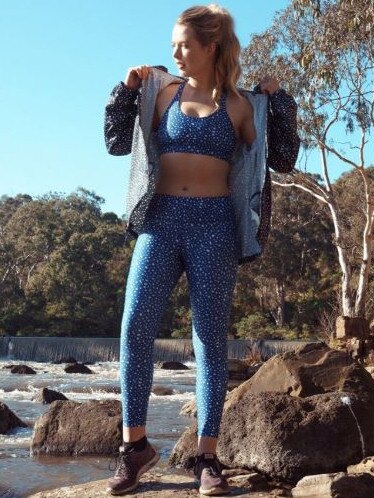Mister Timbuktu activewear made from recycled bottles and fishing nets
Would you wear clothes made out of recycled plastic? A young entrepreneur has found her own solution to the recycling crisis — using discarded plastic to create activewear.

North
Don't miss out on the headlines from North. Followed categories will be added to My News.
RECYCLED plastic bottles and fishing nets are at the centre of a young entrepreneurs plans to revolutionise the fashion industry.
Mister Timbuktu is the brainchild of Thornbury designer Rhianna Knight, who hopes her brand will change the world, and help the recycling crisis, one pair of leggings at a time.
Her activewear range includes crop tops and leggings created from using recycled plastic bottles from Europe and her jackets are made from fishing nets in Taiwan.
A MAP TO ETHICAL AUSSIE MADE CLOTHES
THE DESIGNER PUTTING THE BRAKES ON FAST FASHION
FASHION BRANDS TO SIGN WORKER SAFETY AGREEMENT
Ms Knight said she wanted to start a brand to encourage women to get outdoors and the sustainability side of things was a no-brainer.

“I’d love to see sustainability as the standard. Rather than chasing profit you can balance people, planet and profit,” she said.
Australians average 27kg of new textiles every year, and send 85 per cent of the textiles they buy to landfill.
Mister Timbuktu has eliminated single use plastics from their supply chain.
Even the mailing bags are made from an easily compostable cornstarch.
Mister Timbuktu’s clothes are made in a family-owned business in Indonesia and a factory in China, which sends reports of its compliance with strict workplace laws.
Ms Knight said she went through a lengthy 12 month process to find appropriate ethical manufacturers but it was all worth it in the end.
“People are really starting to care about where their clothes are made,” she said.
The recycled fibres use up to 70 per cent less energy than traditional synthetics, which are created from crude oil.
RMIT Fashion and Textiles associate dean Dr Jenny Underwood said the industry needed a drastic rethink of how manufacturers produced textiles and how the public consumed them.
“We have to be really smart about it and shift from a linear process,” she said.
“There’s an opportunity to think and reimagine waste as a new form of material and take things like recycled plastics and all sorts of textiles and repurpose them for a new life.”
Mister Timbuktu launched in June after a successful crowd-funding campaign raised $19,500 and the brand was on track to recycle about 15,000 plastic bottles in its first year.
Ms Knight said the inspiration for the brand was in trying to get people outdoors, regardless of what that activity was.
“Most activewear brands are focused on looking good. We want to promote feeling good and challenging yourself,” she said.
For more information visit the Mister Timbuktu website.


